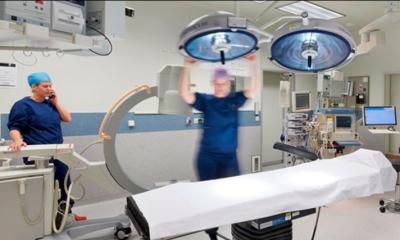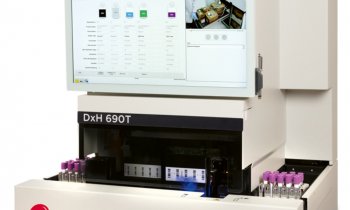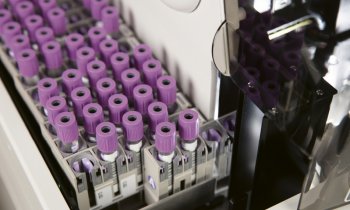
Article • Emergency
Rapid sepsis recognition saves lives
The UK’s first dedicated emergency department sepsis team has been set up in one of the country’s leading hospitals. Leicester Hospital’s created the team to recognise and manage sepsis. The key aim is to strengthen the response, in a timely manner, to sepsis cases admitted to the emergency department or to identify rapidly any patients who deteriorate within the unit.
Report: Mark Nicholls
The team of medical professionals from various backgrounds includes personnel from intensive and critical care, emergency medicine and operating theatres and is headed by consultant anaesthetist Dr John Parker, Lead Consultant for Leicester’s Hospital. Parker explained that the initiative follows ‘Time to Act’, the Parliamentary and Health Service Ombudsman report of 2013, which observed patient deaths in the NHS after failure to diagnose and rapidly treat severe sepsis.
The document focused on 10 cases in which patients did not receive urgently needed treatment. The care failings appeared to occur mainly in the first few hours, when rapid diagnosis and simple treatment is critical for patient survival. From that, Leicester Hospital’s began a project in early 2014 and formed a ‘Sepsis Awareness’ group, bringing together the mentioned healthcare professionals, led by Dr Parker and Sepsis Lead Specialist Nurse Sarah Odams.
A sepsis improvement project was put in place to raise staff awareness of sepsis, recognising that this is a life-threatening condition that arises when the body’s response to an infection injures its own tissues and organs and leads to shock, multiple organ failure and death if not recognised early and treated promptly.
Sepsis Awareness training is now mandatory for our staff
John Parker
The trust also implemented measures at that time to improve the management of septic patients across the Trust’s hospitals.
Since then, the response to sepsis has evolved in a number of ways. The Trust has written a bespoke ‘Sepsis Adult Screening & Immediate Action’ pathway, which has been shared with staff across hospitals in line with NICE (National Institute for Health and Care Excellence) and the UK Sepsis Trust protocols. ‘We have developed a range of training for our staff, primarily face-to-face,‘ Parker explained. ‘We will also soon have an e-learning package available. Sepsis Awareness training is now mandatory for our staff. We have also carried out regular surveillance audits to make sure that staff are compliant with the care pathway.’
This has seen an improvement in the number of patients being given IV antibiotics and fluids within an hour, as recommended by NHS England, and recognition of sepsis across the Trust is now at 95-100%. ‘With funding from the NHS Litigation Authority, our new dedicated Sepsis Team will be in our Emergency Department, where two thirds of our patients present with the symptoms of sepsis,’ Parker pointed out. ‘On an average day there could be between five and 10 people coming into the Emergency Department with potentially life threatening sepsis.
‘The team will support the emergency team to recognise and immediately treat anyone who we suspect has sepsis. They will then help to make sure that patient gets the right care from emergency surgery to intensive care support.’
20.04.2017









